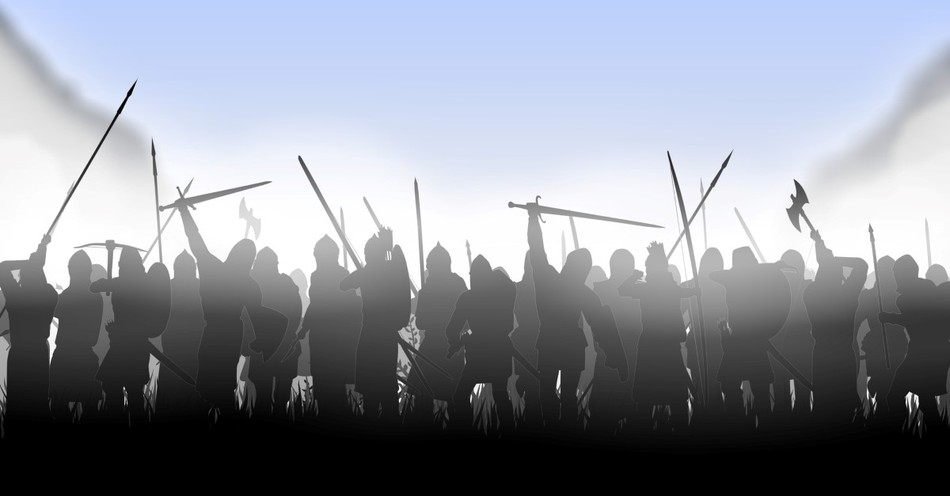Hashem of Gizon is briefly mentioned in 1 Chronicles 11:34 as the father of at least one of King David’s famous heroes. Couched in a long registry of names, Hashem’s unidentified sons found distinction as part of a group known as David’s Mighty Men. This article will explore the significance of Hashem and the impact of his mention in Scripture, as well as the impact of his brief story.
Hashem is listed as the father of at least one of King David’s famous heroes. Couched in a long registry of names, Hashem’s unidentified sons found distinction as part of a group known as David’s Mighty Men.
Which Bible Verse Mentions Hashem?
The name Hashem, mentioned in 1 Chronicles 11:34, offers little in the way of explanation.
“The sons of Hashem the Gizonite, Jonathan the son of Shage the Hararite” (1 Chronicles 11:34 KJV)
The parallel listing in 2 Samuel 23:32 reads, “Eliahba the Shaalbonite, the sons of Jashen, Jonathan…” (ESV).
Most Bible scholars agree that the two recordings refer to the same person. “The sons of Jashen,” in 2 Samuel and “the sons of Hashem” in 1 Chronicles, seem to indicate one man.
Hashem’s identification becomes murky in his place of origin as well. The term “Gizonite,” from the verse in 1 Chronicles, indicates an inhabitant of Gizoh, a place somewhere in the mountains of Judah. However, since only this verse in the Bible mentions “Gizonite,” some theologians think it is a misspelling of “Gunite.” Numbers 26:48 speaks of a clan of Gunites.
The sons of Naphtali according to their clans: of Jahzeel, the clan of the Jahzeelites; of Guni, the clan of the Gunites…” (Numbers 26:48 ESV).
Although some would attribute the variance to a copiest error, it does not seem likely because individuals, rather than clans or groups of people, make up the list in 1 Chronicles 11:34. With the small amount of information given, we can only speculate about the father of the son or sons, who fought and protected King David.
What Does It Mean that Hashem’s Sons Were David’s Mighty Men?
David’s Mighty Men continue to be legendary within the pages of Scripture even today. These trusted men performed the duties of a special task force for the king. The Bible names them David’s “Mighty Men” (1 Chronicles 11:10; 2 Samuel 23:8).
As part of this elite group, Hashem’s sons fit extraordinary requirements. David also honored Hashem by singling out his sons for such special work.
1 Chronicles 11 and 2 Samuel 23 talk about this group of renowned men who surrounded the king like a Special Operations team. In today’s terminology, they “had the king’s back.” These men were devoted to the king. They acted as his warriors, guards, and attendants. They fought battles, killed wild animals, and conquered territories. God used them to defeat David’s enemies and accomplish His purposes during David’s reign.
Scripture refers to them also as “thirty chiefs” in 1 Chronicles 11:15, and in 1 Chronicles 12:4, they are titled simply “the Thirty.” David counted on these men for their loyalty and, most importantly, for his protection.
Who Were Some of the Other Mighty Men of David?
Although we know very little about Hashem, we can gain a broader picture of what it meant to be one of David’s Mighty Men from some of the stories of others on the list. If these men could speak today, their true tales of heroism would be as well-known as they were then.
David himself lived a heroic life. His courage and military conquests made him famous. Catapulted into fame by his bravery and defeat of the giant Goliath, he lived the life of a fugitive until he became king. David grew powerful because God was with him. He chose wise, powerful, intelligent, and skilled warriors. His men were the best of the best, brave in battle, and distinguished soldiers.
God promised to extend David’s territory, and He used approximately 30 men to help get it done.
Three of David’s champions stood out from the others.
1. Jashobeam, chief of the officers, killed 800 men simultaneously with his spear.
2. Eleazar fought at David’s side in a barley field. When the Israelites retreated, they fought against the whole army of Philistines. Eleazar stood his ground. He struck down the Philistines one after another. He fought so long and hard that his hand froze to the sword.
3. When the Israelite army fled, Shammah fended off an entire Philistine army from a field of lentils.
Abishai was the chief of the Three (Jashobeam, Eleazar, and Shammah). He became as famous as the Three because he killed 300 men and the son of a giant. He earned his position because of his accomplishments and became commander of the Three, but he was not one of them.
Benaiah acted as captain of David’s guard. He killed two of Moab’s mightiest warriors, an Egyptian giant, and a lion. He took the Egyptian’s spear from his own hand and killed him. He was held in greater honor than any of the 30, but he wasn’t one of the Three either. Benaiah played a role after David’s death in helping to secure Solomon as King.
Three other unnamed men set themselves apart by showing loyalty and bravery to their king. While David was in the stronghold of the Philistine army at Bethlehem, David ardently wished for someone to get him a drink of water from the well near the gate of Bethlehem. Three of his men set out to get the king a drink. They broke through to where the Philistines camped and risked their lives to reach the well. But David would not drink the water they brought to him because of the peril they endured to bring it to him.
Perhaps the best-known Mighty Man is Uriah. He was also a great warrior, a good friend of David’s, and an honorable man loyal to the king. While these impressive men had David’s back, unfortunately, Uriah is famous because David betrayed him. David committed adultery with Uriah’s beautiful wife and then had Uriah murdered in battle.
Can We Learn Anything from Hashem?
Can anything be learned from the inclusion of Hashem’s name? Even though we know so little, it confirms these truths:
1. God knows each individual and created each person with a plan and purpose. God’s Word singles out names and times. He demonstrates His intentionality with the existence of every living soul. This should bring us to awe and recognize He has a plan for my life and a purpose for my being.
2. He supplied in His Word those things He wants us to know, and His omissions were also divine. If we are honest, we sometimes wonder why certain things are mentioned in Scripture and, perhaps even more, why some things are not. God has included in His inspired Word exactly what He wants us to know and precisely what He does not. We can approach Scripture with assurance that He has given us what we need in the pages of His book.
3. Generations are important to Him. We must recognize this in our short timespan. God provided for generations to carry His Name forward. Our family tree, whether known or unknown, despite its glitches, is important. He desires we perpetuate His name to the next generation.
4. God rewards faithfulness and trustworthiness. We do not know much about Hashem or his sons, but we can be sure they showed strength, bravery, and loyalty, or they would not have been numbered in David’s Mighty Men. Our character matters more than fame.
As we read about the Mighty Men, often strange and forgettable names, like Hashem (or Jashen), we need to remember the magnitude of our God. Although names and places fade, exact spellings or parenthood become foggy, God knows each one. He knew thousands of years ago of a man and his sons who experienced life and death, laughter and tears, love, and hatred. This God who knows also knows our razor-thin space in time and its significance in eternity.
Although I’m not a great fan of family trees and genealogical maps, I can’t help admiring those whose names listed in Scripture reflect character quality—and albeit obscurely, Hashem seems to be numbered as one of those. Centuries of generations read his name in the Bible. What an incredible privilege and honor it is for a man who lived many years ago, named Hashem.
Photo Credit: © Getty Images/Patserg

Her love for pasta and all things Italian stems from years of ministry abroad. She’d love to tell you about it over a steaming cup of cappuccino. Connect with Sylvia on her blog, When the House is Quiet, her Facebook page, or Twitter.
This article is part of our People of Christianity catalog that features the stories, meaning, and significance of well-known people from the Bible and history. Here are some of the most popular articles for knowing important figures in Christianity:
How Did the Apostle Paul Die?
Who are the Nicolaitans in Revelation?
Who Was Deborah in the Bible?
Who Was Moses in the Bible?
King Solomon's Story in the Bible
Who Was Lot's Wife in the Bible?
Who Was Jezebel in the Bible?
Who Was the Prodigal Son?



